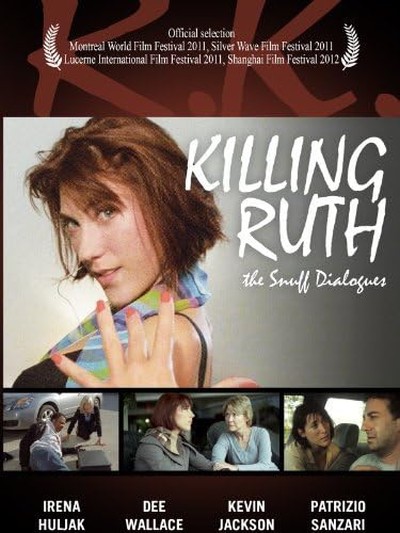★★
“Editing. It’s a choice.”
 As soon as I saw the running time of this was one hundred and thirty-one minutes, it immediately went onto the back-burner. I have a busy life, and I’ve going to devote close to two and a quarter hours to a low-budget movie, it is going to be when I have a lot of time to spare. My qualms were obvious, and proved very well-founded. This absolutely had no need to be so long. Indeed, it feels like a first draft, which became a shooting script, and everything filmed then ended up in the end product. Entire scenes are superfluous, and those which aren’t could use between “some” and “an oce-lot” of tightening up.
As soon as I saw the running time of this was one hundred and thirty-one minutes, it immediately went onto the back-burner. I have a busy life, and I’ve going to devote close to two and a quarter hours to a low-budget movie, it is going to be when I have a lot of time to spare. My qualms were obvious, and proved very well-founded. This absolutely had no need to be so long. Indeed, it feels like a first draft, which became a shooting script, and everything filmed then ended up in the end product. Entire scenes are superfluous, and those which aren’t could use between “some” and “an oce-lot” of tightening up.
It’s the story of Ruth Keeley (Huljak), who comes home one day to find her father shot dead in his car. She eventually discovers that he had been a hit-man, working for Rod Porter (Jackson), and ends up following into the family business, as it were. On one job in a hospital, she ends up befriending Mrs. Connors (Wallace), the patient in the next bed to her target, and starts sharing her life with the old woman, who offers zero moral judgement. That includes her relationship with long-suffering boyfriend Cameron (Sanzari), and the quest to find out who was behind the death of her father, and why. Which turns out to be exactly who I expected, from about two hours previously.
The idea at its core is not a bad one. There’s something to be said for the idea of an assassin being plain and unremarkable, allowing them to slide past without attracting attention. Ruth is certainly that, being a waitress until her change in career direction, and Huljak is a good choice. She’s incredibly normal, and about as far from the Luc Besson-style of supermodel hit-woman as you can imagine. I’d like to see a film where we have a hitwoman dealing with everyday issues in between violent killing sprees, such as figuring our taxes, or dealing with annoying neighbours. This, however, is more interested in low-key conversations – and by “low-key”, I mean too many scenes which, to borrow a Python quote, wouldn’t “voom” if you put four million volts through them.
Even Wallace, who brings value to everything she’s in, isn’t able to energize things adequately. Not helping: the film brings in ideas, then discards them again, almost at random. For example, Ruth’s late father shows up and talks to her for a bit, then just… doesn’t. Or she gets a mysterious letter from her father’s killer; an angle which the movie forgets about entirely for a good hour, before bringing it back in, semi-randomly, at the end, to try and achieve closure. Long before that point, this had been reduced to the level of background radiation. It was on, and I was in the same room as it. Much more than that, I can’t commit to. But it definitely fails as action, probably as a thriller, and largely as drama too.
Dir: Nicholas Kinsey
Star: Irena Huljak, Dee Wallace, Kevin Jackson, Patrizio Sanzari




